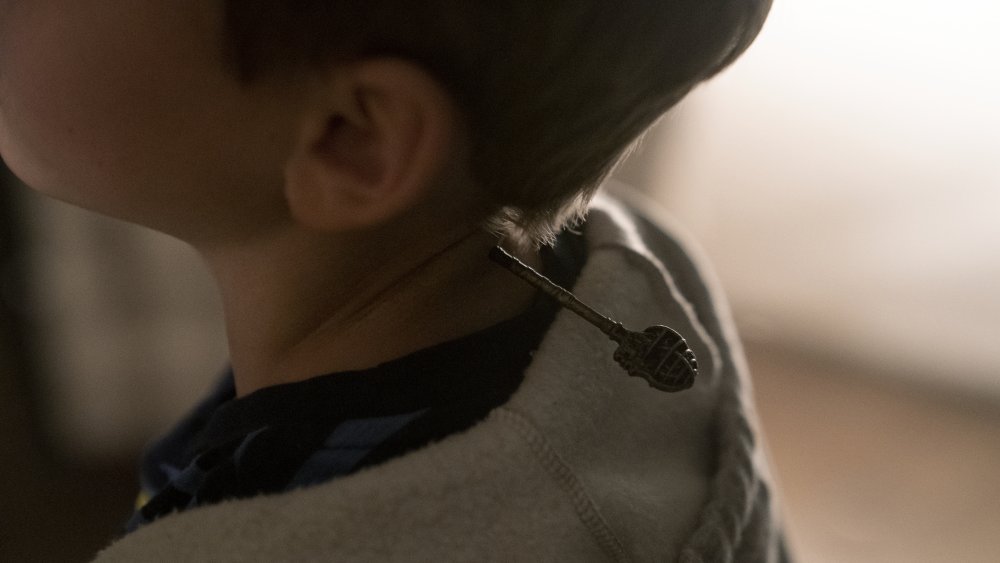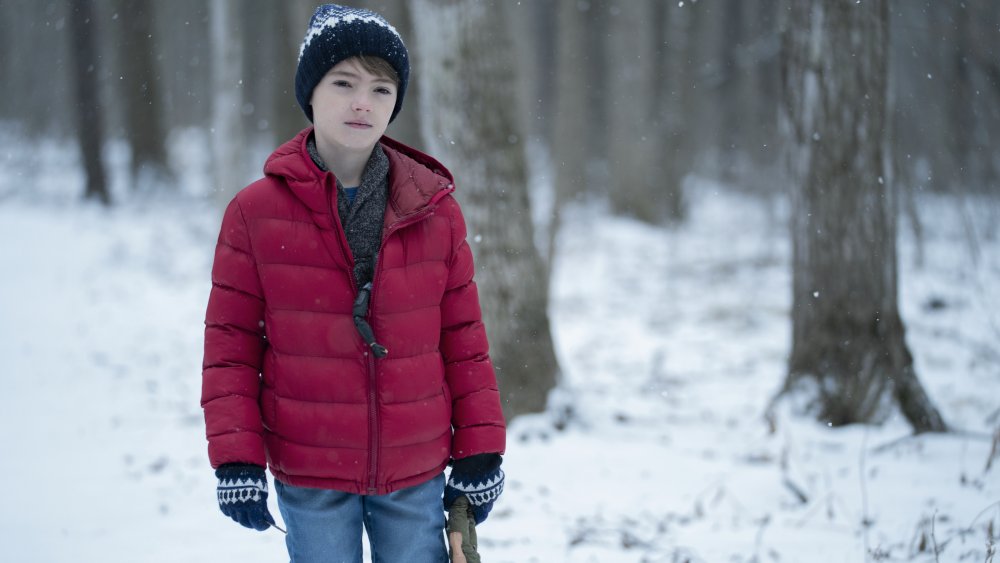Why The Ghost Key In Locke & Key Is More Important Than You Think
Locke & Key's Keyhouse Manor holds too many mystical keys to count, even as showrunners Carlton Cuse and Meredith Averill promise more ahead. But Locke & Key comics creator Joe Hill says that, when it comes to Bode's journey, one key is particularly significant.
After moving with his family to Matheson, Massachusetts following his father's murder, Bode (Jackson Robert Scott) is the first to discover one of his new home's magical items. Unlike in its popular Netflix adaptation, the Ghost Key is Bode's very first find in Hill's comic. Its power is, in keeping with its name, granting those who possess it the ability to roam the house grounds as a ghost after inserting the key in the right door.
Season 1 of the Netflix show revealed plenty of powerful keys, with more sure to come, but Hill explains how the Ghost Key doesn't just serve as the gateway into the house's magical universe for the Locke siblings. The timing of its appearance is directly tied to Bode processing the death of his father.
"When you're eight years old [as Bode is in the book], you don't really understand death. What does it mean if one of your parents die; how can you understand that," Hill said. "By using the ghost key, Bode can begin to understand something about what it's like to leave the house of the body. What it might be like to have your life over with." Hill's statement takes on considerable significance for those who have read the entirety of the Locke & Key comics. As for the Netflix adaptation, although it may not have been overt, several scenes proved how crucial the Ghost Key was to Bode's arc.
Bode explores the concept of death the first time he uses the Ghost Key
In the show, the Ghost Key is the fourth key that comes into Bode's possession after the Mirror Key, Anywhere Key, and Head Key. Bode is quick to test it and, soaring above the Keyhouse grounds, the youngest Locke bumps into an ancestor, Chamberlin Locke, in the graveyard. During their brief conversation, Bode asks if the man has seen his father, Rendell. While Bode doesn't make a big deal out of it, it's clear from the question that the youngest Locke understands where he is, and its implications. In response, Chamberlin asks Bode where his father died, and when the reply is, "Seattle," the ghost explains that only people who die on the grounds can hang around.
The rest of the conversation — and Bode's out-of-body trip — trades character development for universe-building exposition explaining the key. It also plants foreshadowing crumbs about what happened between Bode's father and his friends when they were young and in possession of the keys, themselves.
Bode's awareness of death isn't broached again until later in the season, when Rendell's murderer, Sam Lesser (Thomas Mitchell Barnet), re-appears looking for the Head Key. This is when Bode admits he also knows the danger that comes with the key. As he attempts to check on his mom using the Ghost Key, he tells his sister, Kinsey (Emilia Jones), to guard his body and make sure the door doesn't shut because, if the Ghost Door closes before you return to your body, you die. Not only the existence, but also the finality of death is now clear to Bode.
While Bode has clearly taken part in the journey Hill references, there is still very much more room to see Bode explore in this thematic vein in Locke & Key season 2.

